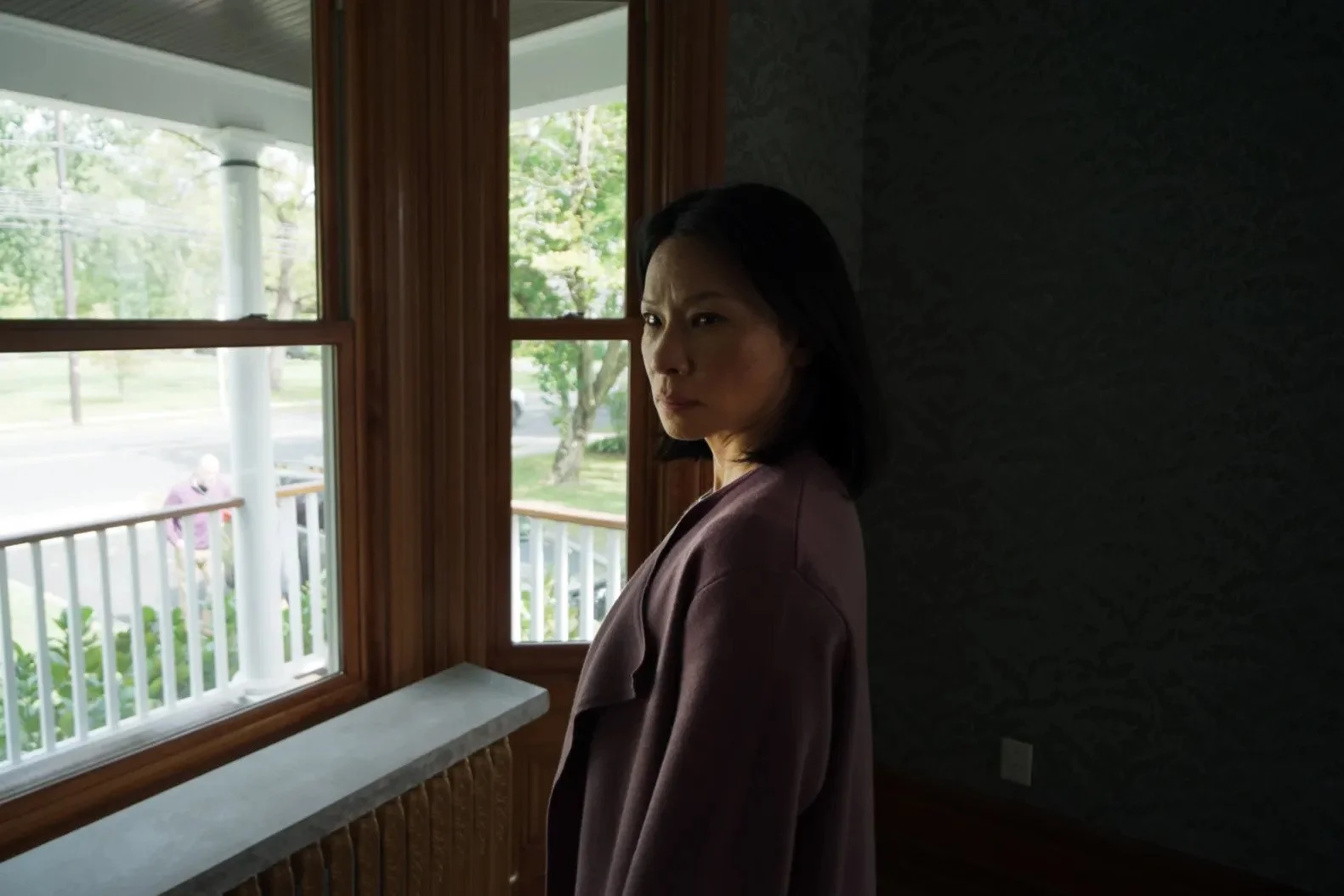‘PRESENCE’: The Camera Floats, The Story Sinks
Anticipation was high for ‘Presence’, especially since it’s not every day that Steven Soderbergh tackles a ghost story. Known for switching genres with ease, his dive into the supernatural felt unexpected in the best way. I went in hoping for something fresh, eerie, and surprising, and to be fair, it does start off strong.
The opening is bold and elegant. Soderbergh locks the camera into a ghostly point of view, gliding through an empty house at night. We float from room to room, up the stairs, down again, circling back to the same spaces, never leaving the house. It’s quiet. Still. Strangely hypnotic. There’s no score, no dialogue, just long, observational takes that feel almost documentary-like. It works.
Then the family arrives, and the house begins to fill up: with voices, light, furniture, clutter, and emotional baggage. We meet the parents, played by Lucy Liu and Chris Sullivan, their teenage son Tyler (Eddy Maday), and their daughter Chloe (Callina Liang), who’s clearly struggling with grief after losing a close friend. The family dynamic is familiar but effective: Chloe is overlooked by her mother, who favours Tyler, while the father is more sensitive to his daughter’s pain and sees through his son’s posturing.
This setup, seen entirely from the eerie, drifting perspective of the invisible presence, is compelling. The ghost is the camera, and we become voyeurs, watching, but never interacting. There’s no cutting between perspectives, no traditional staging. Just smooth, continuous observation. And again, it works. Until it doesn’t.
As more secondary characters enter the story, things start to fall apart. The psychic brought in to 'communicate' with the presence, Chloe’s love interest, and Tyler’s friend, Ryan (West Mulholland), mark the point where the film begins to falter. Their dialogue feels unnatural and overly scripted, and the performances just don’t hold up.
One performance, in particular, stands out for all the wrong reasons. West Mulholland has a hard time delivering his lines convincingly, and his attempts at sincerity feel forced, making it difficult to connect with his character. Every time he spoke, it pulled me right out of the film.
Then, the music starts creeping in. The early purity of the film, the long takes, the ambient quiet, the unsettling stillness, is gradually drowned out by suspenseful cues that feel more at home in a conventional thriller. The film had carved out a unique aesthetic by showing restraint, but it suddenly abandons that for over-scored tension and a more traditional structure.
As a result, the ghost’s perspective, which initially felt fresh, begins to feel more like a gimmick than a meaningful storytelling tool. The strength of that formal choice fades as the film falls back into familiar genre tropes. Scenes that were once mysterious and evocative start getting explained in unnecessary detail. Moments that were already clear get spelled out, as if the audience couldn’t be trusted to piece things together.
In the end, ‘Presence’ is a film with a fascinating premise and a fantastic start, but it struggles to sustain its momentum. Ironically, it’s in the quiet moments that the film feels most alive, when it embraces silence, subtlety, and atmosphere, it draws you in completely. But the more it shifts toward explanation, clunky dialogue, and conventional filmmaking, the more it loses its grip.
It’s an ambitious experiment with flashes of something truly original, but with every unnecessary line, the tension quietly slips away. And honestly, I just wished there had been more Lucy Liu on screen.




